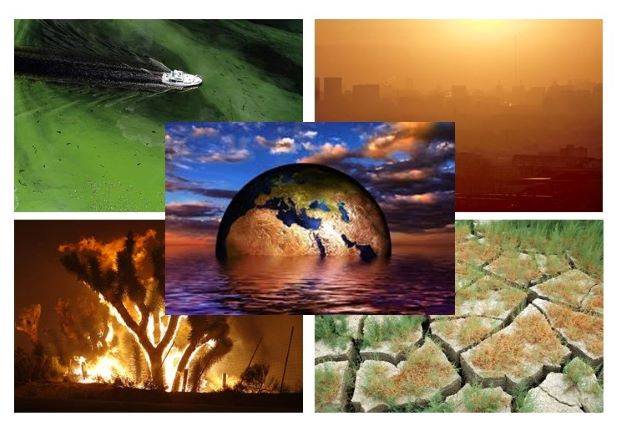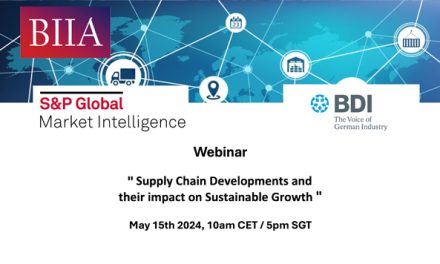Contribution by Dr. Chris Kuehl, ARMADA Corporate Intelligence
It’s Here, It’s Irreversible and Our Responsibility. This is the basic conclusion reached by perhaps the largest and most comprehensive study yet conducted on the issue of climate change. The Intergovernmental Panel on Climate Change is drawn from a three-year study of over 14,000 peer-reviewed scientific studies.
 The IPCC is made up of 195 nations and this is the first of four reports that will be issued in the next 15 months. Nothing on this scale has been produced since 2013 but that hardly means that skeptics and deniers will be convinced. There have always been four fundamental questions regarding climate change – 1) Is there real evidence of climate change, 2) what damage can this change do, 3) who or what is responsible for the climate changing factors and 4) what can be done about it. This report goes a very long way towards answering all four of these.
The IPCC is made up of 195 nations and this is the first of four reports that will be issued in the next 15 months. Nothing on this scale has been produced since 2013 but that hardly means that skeptics and deniers will be convinced. There have always been four fundamental questions regarding climate change – 1) Is there real evidence of climate change, 2) what damage can this change do, 3) who or what is responsible for the climate changing factors and 4) what can be done about it. This report goes a very long way towards answering all four of these.
Analysis: The evidence that there has been a significant change in the climate has been mounting for decades and only the most determined have been able to ignore this evidence. The majority of the critics have accepted that the climate has warmed significantly but there has been controversy over the role that people have played.
There have been climate shifts throughout the earth’s history and many have been just as dramatic. These were not caused by human activity and there have been those that assert that this shift is also at least partly natural. There is likewise little doubt that climate change has been damaging in the extreme. This year alone the droughts and wildfires have been devastating and there have been more severe storms, more floods and even some connection to the spread of pandemics like that of Covid-19.
Beyond these two factors there is far more intense controversy. There is intense debate over what or who to assign blame to. Is this all the result of man-made greenhouse gas that has been trapping heat in the atmosphere? Are their natural reasons for the rising temperatures? These natural issues could include everything from volcanic activity to sunspots. The latest report makes it abundantly clear that most of the climate change has been due to human activity – everything from the production of greenhouse gas to deforestation to reducing the ability of the oceans to absorb the gasses that contribute to the heat.
That leaves the last of the questions and this will be the focus of the most intense debate – what, if anything, can be done about this. There are really only two available courses of action. Either the world engages in a radical set of actions to drastically reduce the causes of climate change or the world figures out a way to cope with the change.
The report does not come down in favor of either approach exclusively as suggestions are made to both reduce the impact and adjust but the report also states that much of the damage that has already been caused is irreversible and even radical changes will not improve the situation for decades and perhaps centuries. This has major implications for the global economy. If the only real reaction to the threat of climate change is figuring out a way to adapt there will be major changes that can’t be avoided. Areas that now produce food will not be agriculturally viable in the future while other areas that were too cold will be able to sustain food production.
Water availability will become ever more important and more parts of the world will become desert. That will drive human migration away from these areas to areas with water. Activities that depend on water will be curtailed. On the more positive side there will be a rush to develop means by which to deal with the climate shift. Communities that are vulnerable to sea level rising will have to develop protection schemes and technology to deploy to counter the impact of the change.
The history of the world is full of examples of human adjustment to changes. Whole civilizations have been victim of a shift in the climate but this process has never been smooth. The report is sobering in the extreme. It essentially puts the world on notice that major change is inevitable and has already become a major concern. There will be required changes to the way that things have been done in the past and that will still not be enough to avoid the necessity of adjusting. As in every such major challenge there will be threats and opportunities
About the Author:
chris.kuehl@armadaci.com – Dr. Christopher Kuehl (PhD) is a Managing Director of Armada Corporate Intelligence and one of the co-founders of the company in 1999. He has been Armada’s economic analyst and has worked with a wide variety of private clients and professional associations in the last ten years. He served on the board of directors of BIIA at its early days. He continues to be a contributor to the BIIA website and newsletter.
He is the Chief Economist for the National Association for Credit Management and is on the Board of Advisors for their global division – Finance, Credit and International Business. He prepares NACM’s monthly Credit Managers Index. He is the Economic Analyst for the Fabricators and Manufacturers Association and writes their bi-weekly publication, Fabrinomics, which details the impact of economic trends on the manufacturer.
 Chris is the chief editor for the Business Intelligence Briefs, distributed all over the world by business organizations and he is one of the primary writers (with Keith Prather) for the Executive Intelligence Briefs. He also makes close to a hundred presentations each year to business and industry associations in the US and overseas. He is on the Board of the Business Information Industry Association in Hong Kong and serves as a resource for the media and for many trade publications.
Chris is the chief editor for the Business Intelligence Briefs, distributed all over the world by business organizations and he is one of the primary writers (with Keith Prather) for the Executive Intelligence Briefs. He also makes close to a hundred presentations each year to business and industry associations in the US and overseas. He is on the Board of the Business Information Industry Association in Hong Kong and serves as a resource for the media and for many trade publications.
Chris has a doctorate in Political Economics and advanced degrees in Soviet Studies and Asian Studies and was a professor of international economics and finance for over 15 years prior to starting Armada.
Pictures: Getty Images/Shutterstock


























